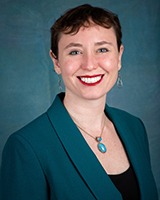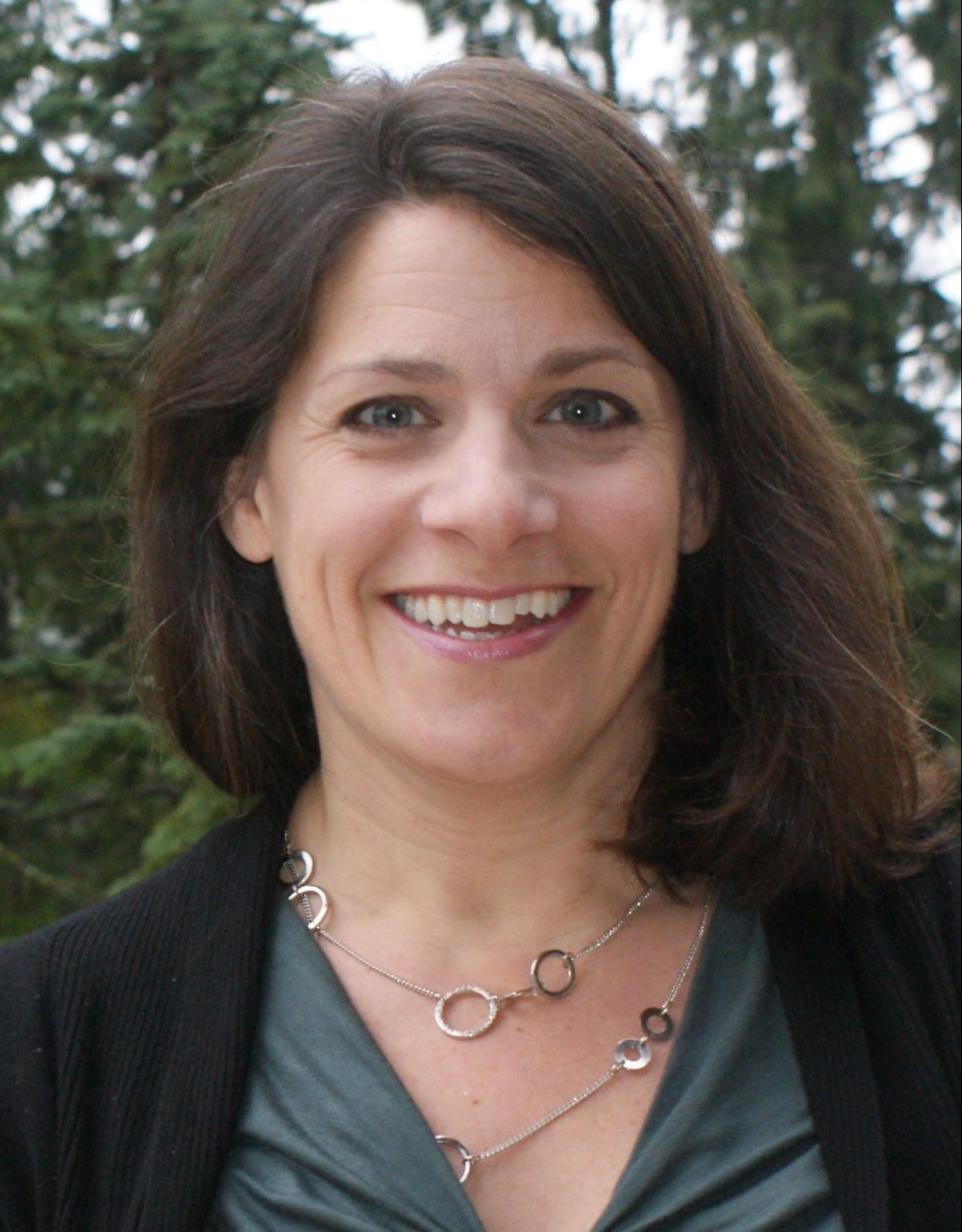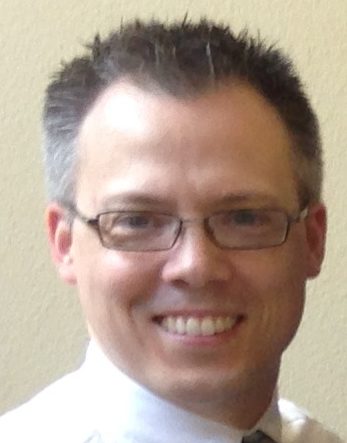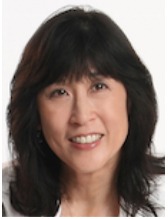To provide even more flexibility for working students worldwide, UW BioE’s Master of Pharmaceutical Bioengineering (PharBE) degree is now offered entirely online. Designed for working professionals, the part-time program can be completed in less than two years.
The PharBE program is tailored for people in the pharmaceutical industry, such as bench scientists, who want to advance their careers or move into another aspect of the biotech industry. “Our students gain additional skills for decision making and designing drugs, to help them be the lead of a scientific component,” says program co-director Karen Thickman, full-time lecturer in Bioengineering.

Karen Thickman, lecturer, UW Bioengineering
“Our graduates have a better and deeper understanding of the entire pharmaceutical market and the process by which pharmaceuticals are developed and what’s needed at the various steps to decide if a drug is a viable pharmaceutical,” Thickman says. “They are also better able to communicate with management about why a drug is scientifically valid.”
Co-directed by Edward Kelley, UW associate professor of pharmaceutics, who managed the Preclinical Bioanalytics group at Targeted Genetics Corporation before joining the faculty at UW; Patrick Stayton, Distinguished Career Professor of Bioengineering, who has developed therapies and co-founded two companies to move them into market; and Thickman, the program gives students direct access to faculty who have first-hand experiences with the drug development process, both in academia and industry.
Students will complete a core curriculum in Basic Biosciences, choose one of two advanced track options – Drug Discovery and Design or Translational Pharmaceutics – and take six credits of Departmental Seminars, which feature industry speakers from diverse biotech areas. Students will also complete a capstone project, featuring a life-cycle plan of a drug.
Convenience for busy schedules
One reason for putting the program fully online is the flux in people and even companies moving around, Thickman says. People can maintain the program regardless of where they live.
Students can watch pre-recorded sessions at their convenience, and live discussion sessions will occur once or twice a week in the evenings.
The program may also be attractive to international students, particularly in China and Korea, whose perspective will be useful to American students trying to understand the pharma industry as it becomes increasingly global, Thickman says.
Jennifer Pageler, PharBE ’12, who was part of the inaugural PharBE class, recalls, “What was so excellent about the course was the ability to interact with your peers and professors in live sessions – and the ability to participate in those sessions from a remote location. As an Amgen IT director, I needed to travel on a regular basis to non-Seattle sites, and the ability to get into my course and participate from a remote location, whether that be an airport or a hotel, was really compelling.”
Seeing from the “other side of the lens”
In addition to recorded and live online classes, students also interact with each other through team projects that promote communication and colleague-building skills.

Jennifer Pageler, PharBE ’12, says she applies the full range of knowledge from her degree to her consulting career.
The program draws a broad mix of students, from those right out of undergraduate programs to bench scientists, lawyers and those with MBAs. Their diverse experiences create a rich learning environment, and students are encouraged to share insights from their daily work, from the manufacturing process to challenges in animal studies and experiments with drug candidates.
The faculty also come from diverse backgrounds, and many are upper-level professionals who have been in the pharmaceutical field for 15 years, with hands-on knowledge and experience in each step of developing and taking a drug from concept to the long-term market.
“Both the curriculum and the people who were involved spanned from industry to hospital clinicians to researchers in academia or non-profits that focused on pure disease research or pure molecular research,” says Pageler. “That sort of breadth of exposure is very difficult to find. Everyone is increasingly specialized, and once you’re in a specialized academic program or job it’s very hard to find opportunities to see from the other side of the lens.”
Relevant content that opens doors
During the program, Pageler led information technology efforts in scientific data management at Amgen. “It was excellent because I found that the content that was taught each evening was content that I could put into practice directly in my job the next day,” she says.
Today she is an IT consultant for the biotech industry and, she says, “This particular degree has definitely opened doors for me.”
“The master’s course gave me an overview of the pharmaceutical development life cycle: from drug discovery through commercial manufacturing and post-marketing commitments,” Pageler says. “I am able to apply that full range of knowledge to my consulting career. As a consultant you never know what part of the industry you’re going to be placed in; having that breadth of exposure and being able to speak the language across the value chain has allowed me to be more successful in my work.”

Will Brown, PharBE ’11, says his degree set him apart from the competition and is useful to him every day in his new role at Juno Therapeutics.
When Will Brown, PharBE ’11, another member of the first cohort, started the program, he was working at a company where there were a lot of people at his level, with the same education and experience. “I chose the program as a way to distinguish myself out of the pack, so to speak,” he says.
“It opened up more than just opportunities within my field, it opened up career opportunities that I hadn’t even considered,” adds Brown. “For example, once I got the master’s degree, I was invited to teach at the community college level.”
He went on to become a researcher with Juno Therapeutics, a Seattle-based immunology company. He helps develop biomarkers, working to find ways to measure whether or not their therapeutics are working, and says his degree is useful to him on a daily basis.
“I really liked that the program looked at the entire drug development process,” Brown says. “As a result, I have a much better understanding of production, manufacturing and FDA requirements. Now, working in translational biology, we’re taking things from a discovery platform and moving it into clinical development, so it’s been a really good background to help me bridge those two worlds.”
Drug development in the business context
Roberta Wong, affiliate assistant professor of Bioengineering, teaches the capstone course that requires each student to produce a strategy document for a drug that is currently in Phase II development. Students will develop their own Phase III human trial along with a strategic plan for publishing studies, launching the drug and marketing it throughout its patent life.
Wong says most of her students come from a laboratory-based background, working at a stage before drugs are tested in humans. She provides an understanding of what happens when drugs are tested in people, and how the work they’re doing in the lab impacts human trials.

Roberta Wong, affiliate assistant professor of Bioengineering, helps her students understand how health economics can affect drug development.
“I also try to explain to them how business decisions could affect moving a drug product forward or not,” says Wong, a Seattle-based pharmaceutical consultant who previously was senior project manager at Amgen, director of corporate planning at Abraxis Bioscience, and director of clinical research at Agensys.
This year Wong is adding a health economics component to her capstone course – a kind of risk-benefit analysis, given the expense of developing a drug today, which runs $1.7 billion on average. “One of the most important questions arising in the last 5-10 years is: Is it worth the cost to spend that much money for the drug, testing and monitoring, and what do you get out of that?” Wong says. “Do you get a better quality of life? Do you extend life, as in the case of cancer or some other life-threatening illness like hepatitis? And what is that worth – does it cost $100,000 to get four more months of life, or is it a $100,000 investment and we get 20 more years of life and save 10 hospitalizations and their potential complications?”
In addition to a better understanding of how drugs are developed, graduates will better understand how diseases are managed and how decisions are made in selecting which drugs are used and not used, Wong says.
“This course is very well-suited for anybody who’s in a position where they want to advance their careers and get more exposure beyond the niche that they are serving in today,” says Pageler, the program alumna. “For the laboratory analysts who were my counterparts in the course, it gave them the ability to see the broader picture of what the upstream and downstream effects of their work were. It offers one of the very few opportunities to step back and look at the entire life cycle of how the biotech industry works.”
Details about the program and answers to frequently asked questions are available on the UW PharBE website.


